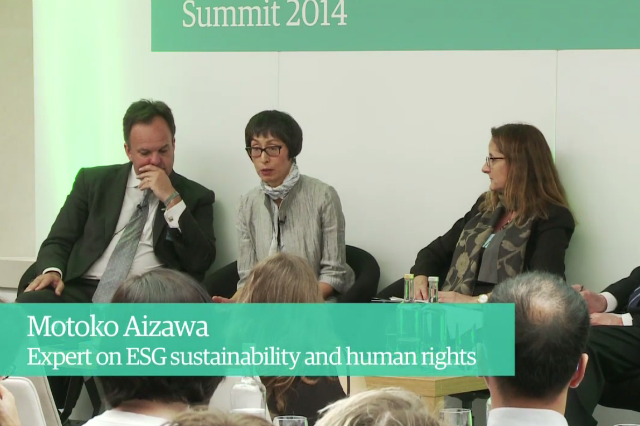IHRB, The Guardian and Humanity United co-organised a one-day summit on 11th April 2014 designed to build the business case for effective management of risks related to human trafficking and forced labour throughout multinational supply chains.
Through a series of honest, practical, relevant and usable case studies presented by the private sector for private sector, this event gave participants extensive access to the nature and scope of modern day slavery in supply chains and to innovative practices that aim to combat it.
IHRB's Motoko Aizawa spoke on the tools within the IFC sustainability framework which can be used to monitor supply chains.





























How should businesses respond to an age of conflict and uncertainty?
As 2024 began, European Commission President Ursula von der Leyen aptly summed up our deeply worrying collective moment. As she put it, speaking at the annual World Economic Forum in Switzerland, we are moving through “an era of conflict and...
26 March 2024 | Commentary
Commentary by Scott Jerbi, Senior Advisor, Policy & Outreach, IHRB